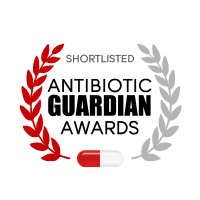Farm Vet Champions
Farm Vet Champions is a major collaborative project, spearheaded by RCVS Knowledge, to empower the veterinary community in a united front to tackle antimicrobial resistance (AMR).
We need you to help us spread the word to your colleagues. Together we can make a difference.
Access the Farm Vet Champions Learn platform
Together with the major UK specialised veterinary and agriculture organisations, we are building a community of Farm Vet Champions, each with direct access to our free online learning platform, to establish a concerted approach towards good antimicrobial stewardship in practices and on farms.
Farm Vet Champions can be accessed on the RCVS Knowledge Learn platform. The learning modules cover:
- technical species-specific modules,
- vet-farmer communication skills and behaviour change principles,
- the legal use of veterinary medicines, policies, and One Health aspects of antibiotic prescribing and stewardship.
You can access the platform and choose which modules are relevant to your area of work. With over 20 hours of free on-demand CPD, these materials will be invaluable to all farm-associated veterinary professionals as well as their wider practice teams.
Once signed up to Farm Vet Champions, you can start setting and tracking your own SMART goals via the SMART goal dashboard. This free, online tool is designed to help you formulate personal and team goals that are Specific, Measurable, Achievable, Realistic and Time-bound, with a focus and priority to Plan, Prevent and Protect our herds and flocks from disease threats.
Farm Vet Champions aims to improve responsible use of antimicrobials and safeguard their availability.
This project has been kindly funded by the Veterinary Medicines Directorate (VMD).
“I have found Farm Vet Champions very engaging, especially the way it covers species-specific learning. The set out allows it to be accessible to fit in with the busiest of schedules as well as being relevant and important to everyone in farm animal practice.”
Charli Lloyd, Veterinary Surgeon and Farm Vet Champion
How can you get involved?
- Become a Farm Vet Champion and start your learning.
- Invite all members of your team to sign up and collaborate by using the SMART goals tool.
- Visit our resources page to use the materials there to promote Farm Vet Champions.
Farm Vet Champion Groups
Farm Vet Champion Steering Group
The Farm Vet Champion Steering group contains representatives from veterinary organisations who will work together to develop and peer-review the module content for the learning platform. Modules will include the principles of antimicrobial resistance, species-specific content, and vet and farmer communications, attitudes and behaviour.
Fiona Lovatt - RCVS Knowledge Farm Vet Champion Clinical Lead
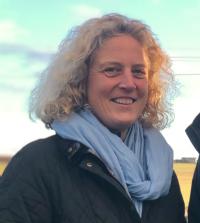 Fiona Lovatt is the Clinical Lead for Farm Vet Champions at RCVS Knowledge. She joins the team with a passion for proactive veterinary involvement on UK sheep farms, particularly enthusing both vets and sheep farmers to interact better through proactive individual flock health planning and Flock Health Clubs.
Fiona Lovatt is the Clinical Lead for Farm Vet Champions at RCVS Knowledge. She joins the team with a passion for proactive veterinary involvement on UK sheep farms, particularly enthusing both vets and sheep farmers to interact better through proactive individual flock health planning and Flock Health Clubs.
Fiona Lovatt runs Flock Health Ltd, a sheep veterinary consultancy business (www.flockhealth.co.uk) that works collaboratively with vets, farmers, processors, retailers and pharmaceutical companies, primarily in the UK but also further afield. She is an RCVS Recognised Specialist in Sheep Health and Production, a diplomate of the European College of Small Ruminant Health Management and works, on a very part-time basis, as a clinical associate professor at the University of Nottingham.
Fiona is a past president of the Sheep Veterinary Society and currently chairs the UK Sheep Antibiotic Guardian Group, having represented the sheep industry on the RUMA Targets Task Force since 2016.
Fiona is a trustee of the Veterinary Christian Fellowship and lives in a beautiful part of rural northern England with her husband and three children, not to mention the dog, two pigs and three hens!
Updated: 21/02/21
Amanda Carson - Sheep Veterinary Society
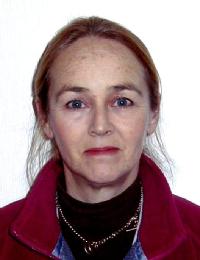 Amanda graduated from the University of Sydney in 1988. Following 15 years as a partner in rural mixed practice in Cumbria Amanda joined the government in 2006 and in 2014 became the Small Ruminant Species Expert Group lead. She leads the Defra-funded small ruminant disease scanning surveillance project in APHA.
Amanda graduated from the University of Sydney in 1988. Following 15 years as a partner in rural mixed practice in Cumbria Amanda joined the government in 2006 and in 2014 became the Small Ruminant Species Expert Group lead. She leads the Defra-funded small ruminant disease scanning surveillance project in APHA.
In 2020 Amanda became the President of the Sheep Veterinary Society.
Amanda’s other sheep related activities include: representing APHA on the Ruminant Health and Welfare Group; vice chair of the Farmer Scientist Network of the Yorkshire Agricultural Society; trustee of the charity The Sheep Trust; member of the Farm Animal Genetic Resources Committee (FAnGR), secretary of the Herdwick Sheep Breeders’ Association.
Chris Lloyd - RUMA
 Chris has been immersed in the livestock sector throughout his career and has practical experience from being a farmer in his own right in that time. He spent 16 years working for the National Sheep Association and during that time was awarded a Nuffield Scholarship to study the developing technologies in the sheep industries of South Africa, Australia and New Zealand. He joined the Beef and Lamb levy board (EBLEX then AHDB) in 2003, and established the Better Returns Programme (BRP) as an engaging approach to delivering farmer-focused technical messages. This remained the brand for its farmer facing knowledge exchange programme, until AHDB more recently developed a cross-sector approach.
Chris has been immersed in the livestock sector throughout his career and has practical experience from being a farmer in his own right in that time. He spent 16 years working for the National Sheep Association and during that time was awarded a Nuffield Scholarship to study the developing technologies in the sheep industries of South Africa, Australia and New Zealand. He joined the Beef and Lamb levy board (EBLEX then AHDB) in 2003, and established the Better Returns Programme (BRP) as an engaging approach to delivering farmer-focused technical messages. This remained the brand for its farmer facing knowledge exchange programme, until AHDB more recently developed a cross-sector approach.
In 2017 he became RUMA Secretary General, a role which gives a unique insight to the responsible use of medicines across the UK livestock sectors. RUMA lead the Targets Task Force (TTF) which established antibiotic use targets for each of the livestock sectors in 2017. The second round of TTF targets announced in November 2020 will run until 2024.

Updated 21/01/21
Grace O'Gorman - NOAH
 Dr Grace O’Gorman is a senior technical policy manager at NOAH (the National Office of Animal Health). Her work includes the management of the Animal Medicines Best Practice (AMBP) training programme for farmers on the responsible use of antibiotics, alongside work on animal health policy, EU exit and future trade.
Dr Grace O’Gorman is a senior technical policy manager at NOAH (the National Office of Animal Health). Her work includes the management of the Animal Medicines Best Practice (AMBP) training programme for farmers on the responsible use of antibiotics, alongside work on animal health policy, EU exit and future trade.
Grace trained as a veterinary scientist and veterinary surgeon, completing her studies in Dublin, and has lectured on animal health topics in the UK. She is a 2019 Nuffield Farming Scholar with a study titled ‘animal medicines best practice, unlocking the potential for UK farming’.
Updated 21/01/21
Gwen Rees - Arwain Vet Cymru
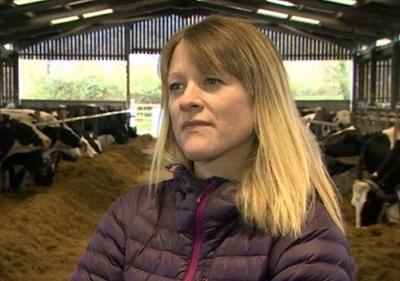 Dr Gwen Rees BVSc (Hons) PhD MRCVS is a Lecturer in Veterinary Science at Aberystwyth University, and was previously Senior Research Associate at Bristol Vet School. She is currently leading the Arwain Vet Cymru project, a Welsh Government-funded collaborative initiative to train and support a network of Veterinary Prescribing Champions across Wales. Her research interests include dairy cattle, AMR and antimicrobial stewardship, ethnography and evidence-based veterinary medicine.
Dr Gwen Rees BVSc (Hons) PhD MRCVS is a Lecturer in Veterinary Science at Aberystwyth University, and was previously Senior Research Associate at Bristol Vet School. She is currently leading the Arwain Vet Cymru project, a Welsh Government-funded collaborative initiative to train and support a network of Veterinary Prescribing Champions across Wales. Her research interests include dairy cattle, AMR and antimicrobial stewardship, ethnography and evidence-based veterinary medicine.
Qualifying as a vet from the University of Liverpool in 2009, she has worked in farm and equine practice in West Wales and New Zealand. She took up a role at Bristol Vet School as Teaching Fellow in Farm Animal Population Medicine in 2014, and undertook a PhD researching prescription veterinary medicine use by UK dairy farmers. Gwen is Associate Editor and sits on the Editorial Board for the BMJ’s Veterinary Record Case Reports, sits on the British Veterinary Association’s Welsh Branch Council and is an author on the Royal College of Veterinary Surgeons’ Evidence-Based Veterinary Medicine (EBVM) Learning projects.

Updated 21/01/21
Gwyn Jones - FIIA RHWG
Biography to come.
Henrietta Kodilinye-Sims - British Veterinary Poultry Association
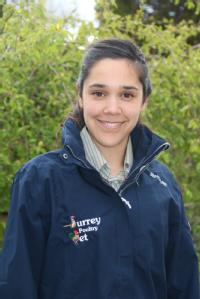 Henrietta Kodilinye-Sims BVedMed PgDipVEPH GCLT MRCVS) graduated from RVC in 2010 and worked in mixed practice before making the move to her area of interest, poultry.
Henrietta Kodilinye-Sims BVedMed PgDipVEPH GCLT MRCVS) graduated from RVC in 2010 and worked in mixed practice before making the move to her area of interest, poultry.
She is now a poultry practitioner both for commercial and backyard flocks, leading the intensive production teaching at University of Surrey School of Veterinary Medicine and the education working group on the British Veterinary Poultry Association (BVPA) committee. Henri also owns her own poultry veterinary practice – Surrey Poultry Vet.
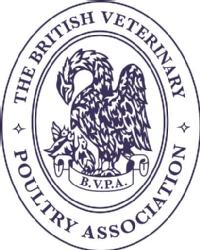
Updated 21/01/21
James Russell- British Veterinary Association
Biography to come.
Mandy Nevel - Pig Veterinary Society
Biography to come.
Mark Jelley - Working farmer representative/ RUMA
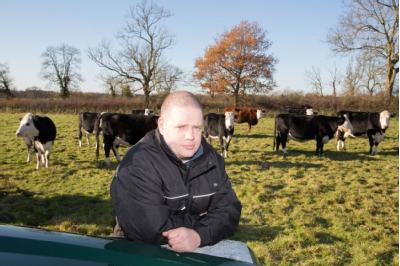 Mark is a suckler beef farmer from Northamptonshire and has recently chaired the RUMA TTF2 group for the cattle sector. Over the last few years, close contact with his local vet practice has resulted in refinement and reductions in antibiotics used on farm, along with a corresponding improvement in herd health and performance too. Mark has been involved in developing farmer facing communications with groups such as COWS, sits as a farmer representative on the Veterinary Products Committee at the VMD and also as an appointee on the NFU Livestock Board.
Mark is a suckler beef farmer from Northamptonshire and has recently chaired the RUMA TTF2 group for the cattle sector. Over the last few years, close contact with his local vet practice has resulted in refinement and reductions in antibiotics used on farm, along with a corresponding improvement in herd health and performance too. Mark has been involved in developing farmer facing communications with groups such as COWS, sits as a farmer representative on the Veterinary Products Committee at the VMD and also as an appointee on the NFU Livestock Board.
Updated 21/01/21
Nick Perkins - Goat Veterinary Society
 Nick Perkins BVSc, CertCHP, MRCVS qualified in 1989, spent five years in mixed practice in Devon before moving to concentrate on dairy cattle work in Somerset. From early in his career, Nick developed a keen interest in goats and worked with several large dairy goat herds as well as the usual client mix of pet and small pedigree goat keepers.
Nick Perkins BVSc, CertCHP, MRCVS qualified in 1989, spent five years in mixed practice in Devon before moving to concentrate on dairy cattle work in Somerset. From early in his career, Nick developed a keen interest in goats and worked with several large dairy goat herds as well as the usual client mix of pet and small pedigree goat keepers.
Nick joined the Goat Veterinary Society as a member early in his practising life, later joining the committee where he is currently President. After 24 years in practice, Nick joined the Veterinary Defence Society as a Farm Animal Claims Consultant.

Updated 21/01/21
Nikki Hopkins - British Cattle Veterinary Association
Nikki Hopkins and a working party consisting of Rachel Hayton, Kat Hart and Keith Cutler will be developing the cattle modules.
Biographies to come.
Pam Mosedale - RCVS Knowledge Quality Improvement Advisory Board
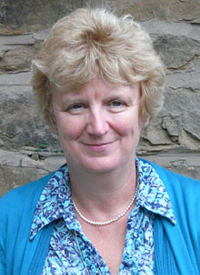 Pam Mosedale BVetMed MRCVS, Chair of QIAB qualified from the RVC in 1979 and worked in mixed practice for the first part of her career, then was a partner in a small animal hospital for 17 years.
Pam Mosedale BVetMed MRCVS, Chair of QIAB qualified from the RVC in 1979 and worked in mixed practice for the first part of her career, then was a partner in a small animal hospital for 17 years.
Pam joins the RCVS Knowledge QIAB as the Chair of the Board, having had extensive involvement with the college. She was a Practice Standards Inspector from the beginning of the BSAVA practice standards scheme and continued with the RCVS, becoming Lead Assessor from April 2015 till October 2020. She welcomed the increased emphasis on quality improvement and clinical governance, clinical effectiveness and audit in the new scheme.
Pam is editor of the BSAVA Guide to the Use of Veterinary Medicines and an SQP assessor for AMTRA.
Pam first got involved in clinical governance when on BVHA council when she started to look into whether clinical audit could be applied to veterinary practices. She wrote the first article published in the UK on clinical audit in veterinary practices in 1999.
Pam has spoken at BSAVA Congress, BVNA congress, SPVS Congress, BEVA clinical audit workshops, CAW TP conference and on many RCVS webinars and CPD courses about clinical governance, clinical audit and Quality Improvement.
Pam is passionate about QI becoming part of the normal working day for veterinary teams and contributing to a just learning culture in practice.
Updated 21/01/21
Farm Vet Champion Stakeholder Group
Our Stakeholder group are key in actively promoting and supporting the Farm Vet Champion Project and encouraging sign-ups from potential Farm Vet Champions. If you are interested in your organisation joining the Stakeholder Group, please email us.
- Agriculture and Horticulture Development Board (AHDB)
- Animal and Plant Health Agency (APHA)
- Antimicrobial Resistance and Healthcare Associated Infection (ARHAI)
- Arwain Vet Cymru
- The Association of Veterinary Surgeons Practising in Northern Ireland (AVSPNI)
- British Cattle Veterinary Association (BCVA)
- British Equine Veterinary Association (BEVA)
- British Veterinary Association (BVA)
- British Veterinary Nursing Association (BVNA)
- British Veterinary Poultry Association (BVPA)
- Chief Veterinary Officer- Northern Ireland
- Chief Veterinary Officer- Scotland
- Chief Veterinary Officer- Wales
- Chief Veterinary Officer- UK
- CVS
- Department for Environment, Food and Rural Affairs (DEFRA)
- Department of Agriculture, Environment and Rural Affairs: Northern Ireland (DAERA: NI)
- Food Industry Initiative on Antimicrobials (FIIA)
- Goat Veterinary Society (GVS)
- Innovation for Agriculture (IFA)
- IVC Evidensia
- Linnaeus
- The National Animal Disease Information Service (NADIS) Animal Health Skills
- National Farmers Union (NFU)
- National Office of Animal Health (NOAH)
- North of Ireland Veterinary Association (NIVA)
- Pig Veterinary Society (PVS)
- Quality Meat Scotland (QMS)
- Quality Milk Management Services (QMMS)
- Responsible Use of Medicines in Agriculture (RUMA)
- Royal College of Veterinary Surgeons (RCVS)
- Ruminant Health and Welfare Group (RHWG)
- Small Animal Veterinary Surveillance Network (SAVSnet)
- Scottish One Health Antimicrobial Resistance and Antimicrobial Use (SONAAR)
- Sheep Veterinary Society (SVS)
- Small Animal Medicine Society (SAMSoc)
- Vet Schools Council
- Veterinary Medicines Directorate (VMD)
- VetPartners
- Wales Animal Health and Welfare Framework Group
- XL Vets
